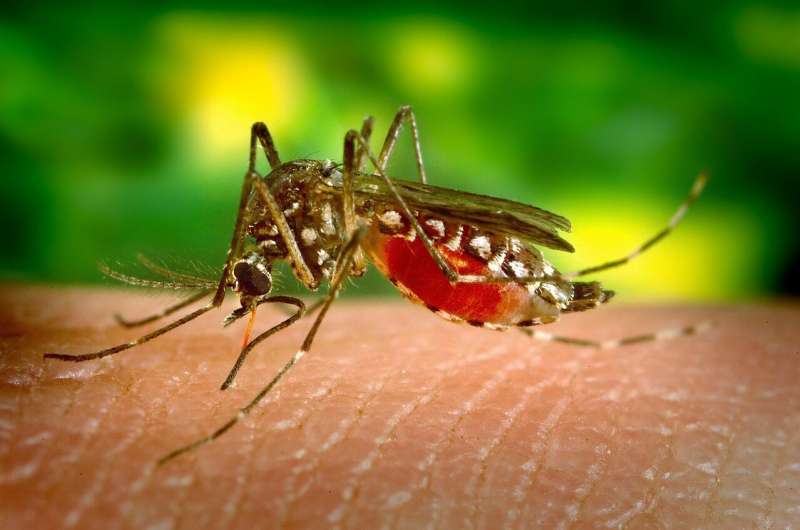Genetic variation not an obstacle to gene drive strategy to control mosquitoes

New research from entomologists at UC Davis clears a potential obstacle to using CRISPR-Cas9 "gene drive" technology to control mosquito-borne diseases such as malaria, dengue fever, yellow fever and Zika.
The idea is to create genetically engineered mosquitoes (GEM) that either fail to reproduce, reducing the mosquito population, or that resist carrying viruses and parasites that cause disease. These mosquitoes would be created in a lab and released to interbreed with wild mosquitoes.
That's where gene drive technology comes in. Using the Cas 9 enzyme, researchers can ensure that the new, modified genes would be inherited by all of the mosquito's offspring when they mate with wild mosquitoes.
Genetic variation not an obstacle
Cas-9 works by recognizing a 23-base pair stretch of DNA. A number of research teams have pointed out that mosquito genomes carry so much DNA sequence variation that a significant proportion of any wild mosquito population will almost certainly be resistant to gene drive. If resistance to the gene drive is favorable to the mosquito, then the gene drive strategy will fail, they argue.
A new study by Hanno Schmidt, Gregory Lanzaro and colleagues at the Vector Genetics Laboratory in the UC Davis School of Veterinary Medicine, published in Nature Communications, shows that this is not the case. After analyzing genomes of hundreds of mosquitoes from three major disease-carrying species, they concluded that 90 percent of protein-coding genes had at least one good Cas9 target sequence. Therefore the mosquitoes should still be susceptible to the gene drive strategy.
"Our results demonstrate that the high level of genetic diversity carried by mosquito populations in nature should not influence the sustainability of strategies based on the introduction of pathogen blocking genes. This is great news for those pursuing a GEM strategy for the elimination of malaria," Lanzaro said.
Additional authors on the paper are Travis Collier, Mark Hanemaaijer, Parker Houston and Yoosook Lee, all at the Vector Genetics Laboratory. Funding was provided by the UC Irvine Malaria Initiative, the CDC and NIH.
As part of the multi-campus UC Irvine Malaria Initiative the UC Davis team is tasked with developing a strategy to move GEM from the laboratory to contained field trials at sites in Africa. A major part of this work is a description of the genetics of mosquito populations at putative sites.
More information: Hanno Schmidt et al, Abundance of conserved CRISPR-Cas9 target sites within the highly polymorphic genomes of Anopheles and Aedes mosquitoes, Nature Communications (2020). DOI: 10.1038/s41467-020-15204-0
Journal information: Nature Communications
Provided by UC Davis




















